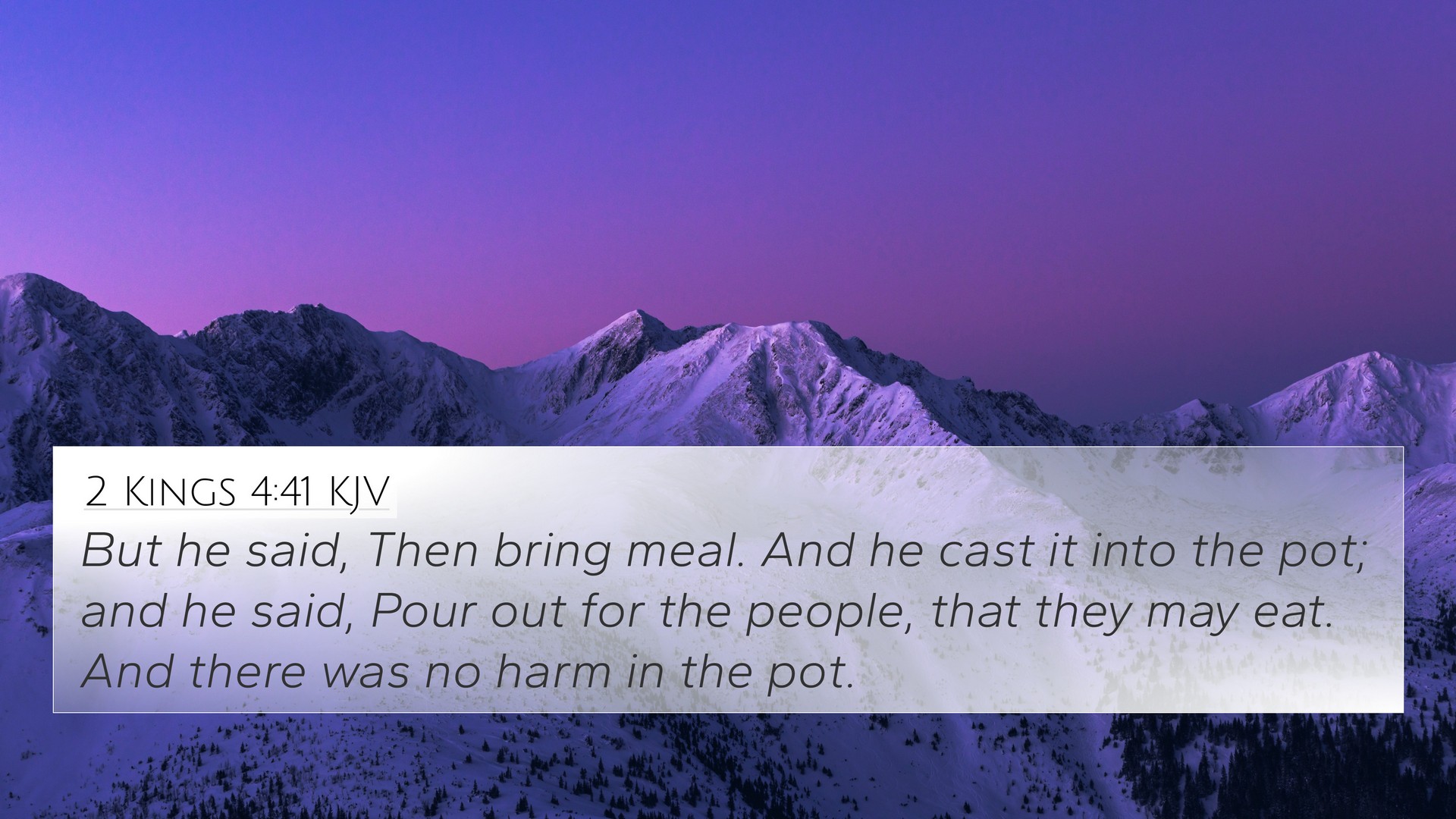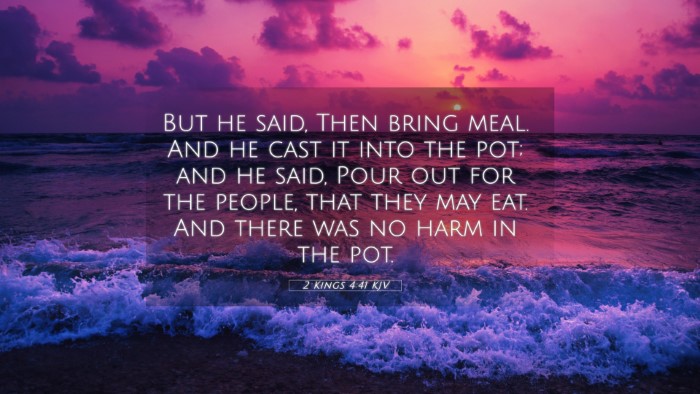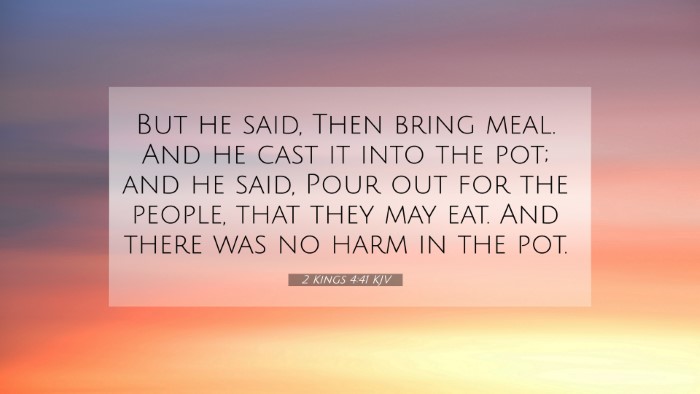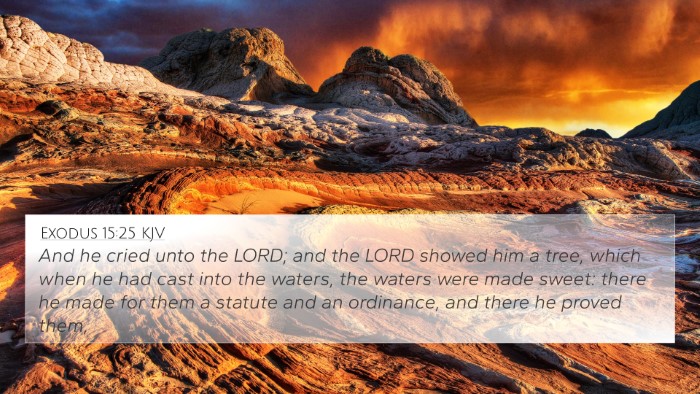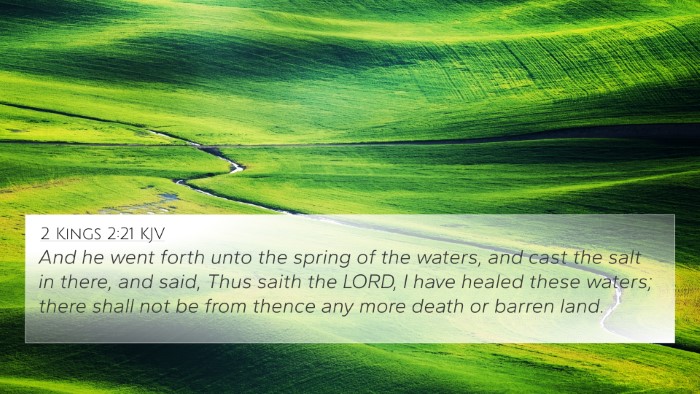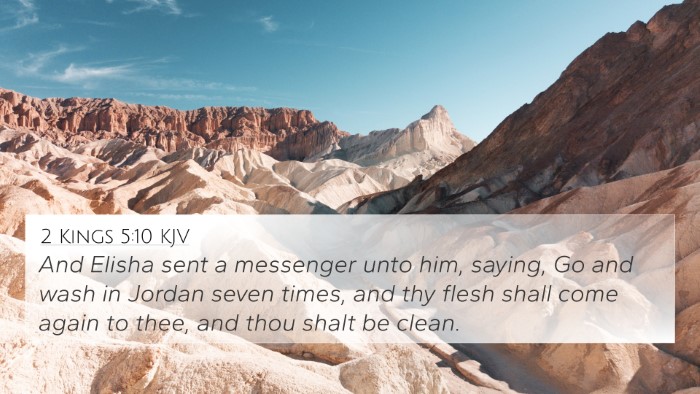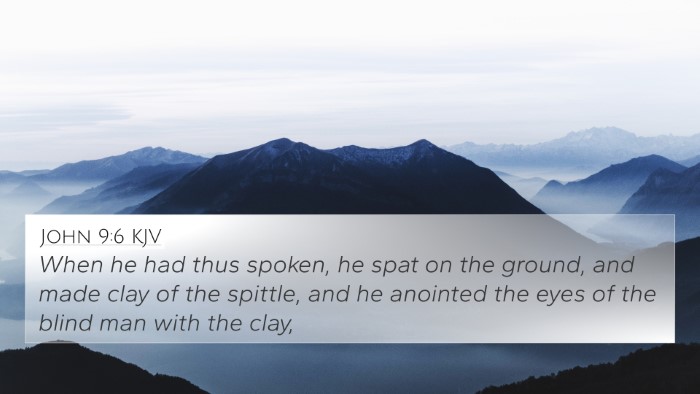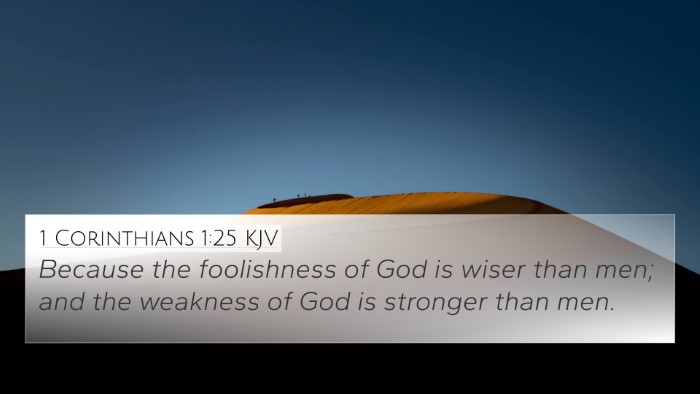Understanding 2 Kings 4:41
In 2 Kings 4:41, we find a verse that signifies a profound moment during the ministry of Elisha, wherein he performs a miracle to address a dire situation involving poisoned food. The verse is as follows:
"But he said, 'Then bring some flour.' And he threw it into the pot and said, 'Serve it to the people, that they may eat.' And there was no harm in the pot.' (2 Kings 4:41, ESV)
This passage illustrates God's miraculous provision and healing power through the prophet Elisha. Here is a summarized interpretation derived from public domain commentaries.
Commentary Insights
-
Matthew Henry:
Henry points out that this miracle highlights the power of God to transform and sanctify the ordinary elements of life (like flour) into means of grace and healing. It reflects the continual care of God for His people, showcasing that even in calamity, faith can lead to divine intervention.
-
Albert Barnes:
Barnes emphasizes the significance of the flour representing a divine remedy for the situation at hand. He interprets this act as a lesson in faith, demonstrating that God’s intervention can transform substances, signifying the restoration of the people’s sustenance and health.
-
Adam Clarke:
Clarke elaborates on the context, noting that the poisoned stew was a crisis for the prophets. The miracle serves not only as a remedy for the immediate problem but also illustrates God's providence. Clarke also connects the act of throwing in the flour to the power of faith and obedience in God’s service.
Theological Reflections
This verse opens up various theological themes, such as God's providence, the role of prophets, and the transformative power of faith:
-
Divine Intervention:
The incident showcases how God intervenes in human affairs, turning an imminent disaster into a situation of safety, highlighting His sovereignty.
-
Faith and Obedience:
The act of throwing flour into the pot symbolizes obedience to God's command and the faith that accompanies such actions, reinforcing the relationship between divine commands and human response.
-
Symbolism of Flour:
The flour can be seen as a metaphor for provision and sustenance in life, relating to broader biblical themes of God's care for His people.
-
Community Needs:
This miracle addresses the immediate need of the community of prophets, showing how God provides for His servants during times of distress.
Cross-References
To further enhance understanding of 2 Kings 4:41, the following Bible cross-references can be explored:
- Exodus 15:25 - God's provision of water through the healing of bitter waters.
- Matthew 14:19 - Jesus feeding the 5,000, which reflects God's provision through miraculous means.
- 2 Kings 4:43 - Elisha multiplying food for a hundred men, further indicating God's provision through His prophet.
- 1 Kings 17:14 - God's promise to provide for the widow during a time of famine.
- John 6:35 - Jesus identifies Himself as the bread of life, drawing parallels between sustenance and spiritual nourishment.
- Mark 8:8 - The feeding of the 4,000 shows God’s care in meeting physical needs.
- Romans 8:28 - Assurance that God works for the good of those who love Him, paralleling the protective aspects demonstrated in this miracle.
- Philippians 4:19 - Confidence in God's provision for our needs according to His riches in glory.
- Job 5:26 - Assurance that those who serve God may encounter difficulties, but He preserves them.
- Isaiah 55:1-2 - A call to come and partake of God’s abundant provisions, which resonates with the theme of divine sustenance.
Conclusion
2 Kings 4:41 serves as a powerful reminder of God's miraculous provision, emphasizing the connections between miracles in both the Old and New Testaments. The insights of Matthew Henry, Albert Barnes, and Adam Clarke profoundly illuminate the themes of faith, obedience, and divine intervention surrounding this scripture. As we explore the connections between these biblical texts, we can see a rich tapestry of God's love and provision woven throughout the Scriptures.
